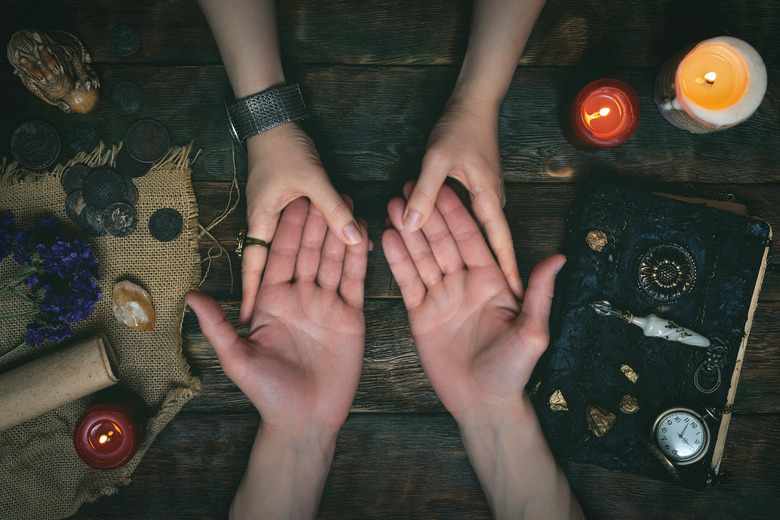Scientists Now Know Why You Sometimes Feel Psychic
Deja vu is odd enough – the feeling that you've been here before, or had this conversation already, but you're not sure when that might have happened or why you feel that way. And for some people, the oddities don't stop there. They might also feel like they know what's going to happen next.
And according to a new study from a Colorado State University professor who specializes in deja vu, people who experience the phenomenon often demonstrate a "predictive" bias, as well – or in other words, a feeling of, "I knew that was going to happen."
Are We a Little Psychic?
Are We a Little Psychic?
Anne Cleary, the professor who led this study, uses lab equipment to induce deja vu in human subjects, according to reporting from Science Daily. In her most recent experiments, Cleary documented evidence of an "I knew that was going to happen" feeling, momentarily following deja vu and feelings of prediction. However, participants in her experiment were not able to actually predict what was going to happen next, indicating that the predictive feeling was still just a feeling, according to the abstract.
"If this is an illusion – just a feeling – why do people so strongly believe they actually predicted what unfolded next?" Cleary told Colorado State University. "I wondered if there was an explanation in some sort of cognitive illusion."
Just an Illusion
Just an Illusion
Cleary explored the option of a cognitive illusion through lab experiments in which she and her team of researchers immersed subjects in a video game-like scene. The scientists would ask the subjects if they were experiencing deja vu, then turn the virtual scene left or right and ask the subjects if the scene unfolded as they expected it to. In a subsequent experiment, researchers asked subjects to rate the familiarity of the virtual scene both before and after the turn.
Ultimately, Cleary and her team found that when intense feelings of prediction accompany deja vu, they correlate strongly with "I knew that was going to happen" feelings (or "postdictive bias"). This likely has to do with the high degree of familiarity that comes with deja vu.
"If the entire scene feels intensely familiar as it unfolds, that might trick our brains into thinking we got it right after all," Cleary told Colorado State University. "Because it felt so familiar as you were going through it, it felt like you knew all along how it was going to go, even if that could not have been the case."
What's Coming Next
What's Coming Next
Cleary is continuing to work on deja vu, now with neuroscientists at Emory University. These neuroscientists work with patients who have sustained injuries to the medial temporal lobe, which is associated with seizures that often come with recurring deja vu. She is also exploring the possibility that people can experience auditory (not just visual) deja vu – also known as "deja entendu," which refers to the concept of feeling like you've heard something before but not being able to place it.
Cite This Article
MLA
Swanston, Brenna. "Scientists Now Know Why You Sometimes Feel Psychic" sciencing.com, https://www.sciencing.com/science-of-feeling-psychic-13723035/. 13 November 2019.
APA
Swanston, Brenna. (2019, November 13). Scientists Now Know Why You Sometimes Feel Psychic. sciencing.com. Retrieved from https://www.sciencing.com/science-of-feeling-psychic-13723035/
Chicago
Swanston, Brenna. Scientists Now Know Why You Sometimes Feel Psychic last modified March 24, 2022. https://www.sciencing.com/science-of-feeling-psychic-13723035/
